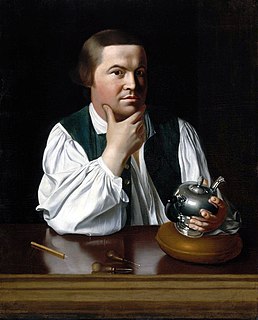A Quote by Seneca the Younger
Happy he whoe'er, content with the common lot, with safe breeze hugs the shore, and, fearing to trust his skiff to the wider sea, with unambitious oar keeps close to the land.
Related Quotes
If the British march By land or sea from the town to-night, Hang a lantern aloft in the belfry-arch Of the North-Church-tower, as a signal-light,-- One if by land, and two if by sea; And I on the opposite shore will be, Ready to ride and spread the alarm Through every Middlesex village and farm, For the country-folk to be up and to arm.








































